News
25 January 2022
Circular water stories worldwide
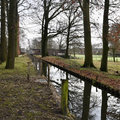
Throughout the world, people have transformed natural water flows into ingenious and controlled water systems, creating impressive cultural and urban landscapes. Traditional water systems are comprehensive systems that are closely linked to the existing landscape, the people -who inhabit and work the landscape-, the animals and plants.
12 January 2022
Housing crisis and housing concepts for senior citizens
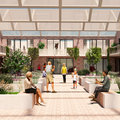
Recently, the role of elderly residents in the housing crisis is hotly debated in the Netherlands. Undoubtedly, more housing would become available if elderly residents would (or could) move to a smaller dwelling. But what do they actually aspire to? What are their housing needs and dilemmas? How can new housing concepts based on sharing and collectivity contribute to the solution? And how can these homes be developed and designed to match the needs of seniors?
21 December 2021
Hydrogen rocks - possibilities of hydrogen in the global energy transition

An open access book discusses the possibilities of hydrogen in a global renewable energy transition and the position of the Netherlands in a variety of points of interest such as: technology, areas of application, geopolitics, social aspects and the hydrogen economy. (Im)possibilities of hydrogen have been examined across the board, and in particular what it could mean for the Netherlands and Europe.
21 December 2021
NWO grant for WEF project South Africa
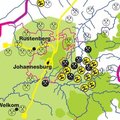
Gaining more insight into the intertwined history of the water-energy-food-nexsus (WEF) in the former mining landscape in South Africa is necessary to stimulate future sustainable spatial developments. The NWO grant for a new project is intended to establish a learning environment which theory and methods are developed in order to analyse and understand spatial dynamics and long-term interactions between water, energy and food. The expected results will contribute to a sustainable vision on the redevelopment of extraction landscapes after mining in general and in South Africa more specific.
20 December 2021
Quantitative data collaborative housing
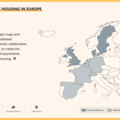
Quantitative data on collaborative housing are currently scattered or even only available upon request, and lack standard definitions. This prevents a comparative understanding of the challenges and opportunities that these housing forms offer. Furthermore, comparative data are needed to facilitate mutual learning and communication amongst users across countries and regions.
16 December 2021
Thesis award for 3D reconstruction of simplified 3D building models
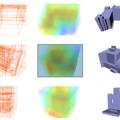
Obtaining 3D models of buildings is crucial to many urban applications (such as urban planning, solar potential analysis, urban flow simulation), which is still an open problem in remote sensing and the related fields. Existing techniques require high-quality laser scans as input, which imposes challenges to data acquisition. Besides, the building models in the existing platforms (such as Google Earth) are represented by millions of triangles. Such a representation is not friendly for the subsequent processing and application.
14 December 2021
Architecture Drawing Prize 2021 for hand drawn graphic novel
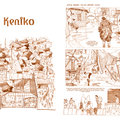
With his submission ‘Reconfiguring Addis Ababa’s Narratives – Storytelling for Architecture’ Antonio Paoletti, - master student of, and now alumnus- of the Global Housing graduation studio ‘Addis Ababa Living Lab’ (2019-2020) was announced the winner of the hand-drawn category of the international Architecture Drawing Prize.
09 December 2021
Designing together in a digital polder model
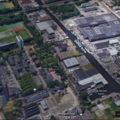
The EquiCity project deploys serious gaming to combine various inputs in urban planning projects. Last week, the development team performed its first public test.
07 December 2021
Unesco Chair in Water, Ports and Historic Cities awarded to Leiden-Delft-Erasmus professor Carola Hein
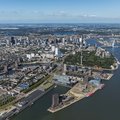
Water-rich cities, such as port cities, often have a rich history. They also have a dynamic future ahead of them, because they are faced with climate change, migration, urbanisation and a whole host of other significant developments. Generally speaking, port cities have a long tradition of adapting to new circumstances, which is often reflected in their heritage. How can we learn from their past to solve problems in the future?
30 November 2021
Building in timber is bad for the environment. Fact or fiction?
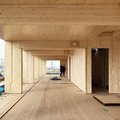
Climate change and material scarcity, combined with housing shortages acutely calls for alternative materials that curb the environmental damage of the construction industry. Bio-based materials, and in particular the latest generation of mass timber products can play an essential role and contribute to making the construction industry climate-neutral and circular.